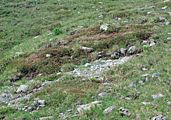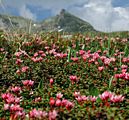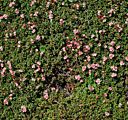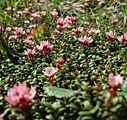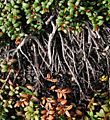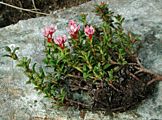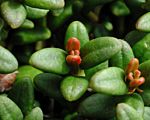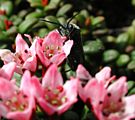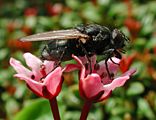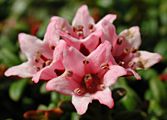Loiseleuria procumbens (Ericaceae)
Loiseleuria procumbens (Ericaceae) grows on very wind-exposed sites. As a consequence of the lack of snow cover, and thus full exposure to solar radiation during the day and night-time cooling, Loiseleuria experiences canopy temperatures of -10 to +30 °C between January and March, in harsh contrast to 2 m air temperatures which never exceed +6 °C during this period. Loiseleuria is well adjusted to cope with these life conditions by maintaining deep physiological dormancy irrespective of periodic canopy warming. (all images taken in the canton of Grison, Switzerland, in July, at 2200 m)
- Area of about 5 m2 covered by Loiseleuria procumbens.
- View inside Loiseleuria carpet.
- View from top.
- Frog perspective.
- On the defoliated part, the creeping stems are visible.
- Ramification of a detached sprout.
- Expanding leaves. Decussate leave order clearly visible.
- Chrysidid as flower visitor.
- Chrysidid diving into a flower.
- Dipterid resting on two flowers.
- Flowering sprout.
- Inflorescence.
- Fruiting sprout.
